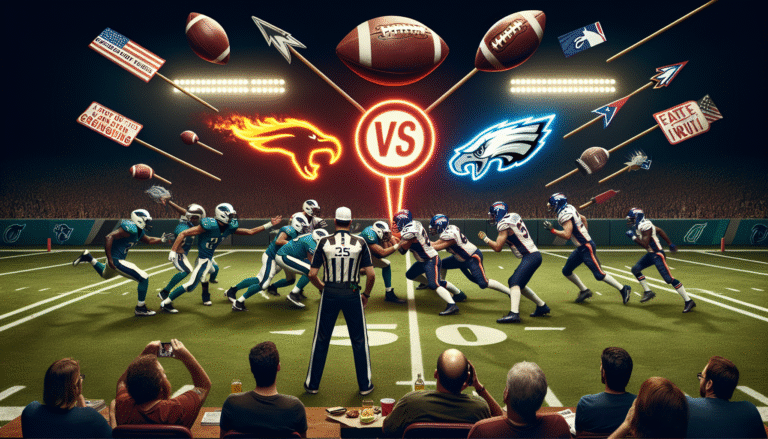Understanding the Intentional Grounding Controversy
The Eagles-Broncos game during Week 5 has become a topic of heated discussion.
An intentional grounding penalty against Bo Nix, which was later overturned, shifted the game’s momentum.
This incident emphasizes the ongoing issues with officiating in the NFL.
The Context of the Game
The pivotal play happened in the fourth quarter with less than four minutes left.
The Broncos were leading narrowly over the Eagles, creating a tense situation.
With the game so close, every decision made by officials gained increased significance.
A Closer Look at the Play
Nix, pressured by Eagles defender Jalyx Hunt, attempted to avoid a sack.
In doing so, he threw the ball away, which led to the grounding call.
This call typically hinges on two main criteria: whether there was an eligible receiver nearby and if the throw reached the line of scrimmage.
The Rules Surrounding Intentional Grounding
Intentional grounding can be complicated, and officials often need to confer before making a decision.
In this case, officials discussed for about 22 seconds before making their ruling.
After indicating grounding, the penalty signaled third and 24 for the Broncos – a critical moment for the Eagles’ defense.
The Reversal of the Penalty
However, a surprising twist came when the referee reversed the call after a lengthy deliberation.
The Broncos were instead given a third and 6 situation, which they converted successfully.
This change allowed the Broncos to maintain their momentum and extend their lead.
Official Commentary and Reactions
Referee Adrian Hill addressed the overturned call in a post-game interview.
He claimed a communication issue among the officials led to the error.
Interestingly, it appears that a line judge may have influenced the reversal by insisting there was a receiver in the vicinity.
Public and Media Outcry
Fans and analysts were swift to criticize the officiating crew for their handling of the situation.
The NFL’s officiating has been under scrutiny for inconsistencies throughout the season.
Many felt that a critical game-altering decision shouldn’t hinge on communication failures.
Broader Implications for the NFL
This incident raises larger questions about officiating standards and the review processes in the NFL.
As the league aims to enhance the game experience, officiating remains a significant hurdle.
Improving clarity and consistency in calls is essential for maintaining credibility among fans and players alike.
What This Means for Future Games
For teams and players, understanding officiating nuances is vital as they navigate their seasons.
This particular play serves as a reminder of the unpredictability inherent in sports.
As the Eagles and Broncos move forward, they will both experience the fallout of this controversial call.
Conclusion: A Call for Change
This controversy reflects the urgent need for the NFL to address officiating issues.
As fans, we deserve to see games determined by skill and strategy rather than contentious decisions.
Moving forward, leagues must prioritize refining the rules and their implementation to enhance fairness.
